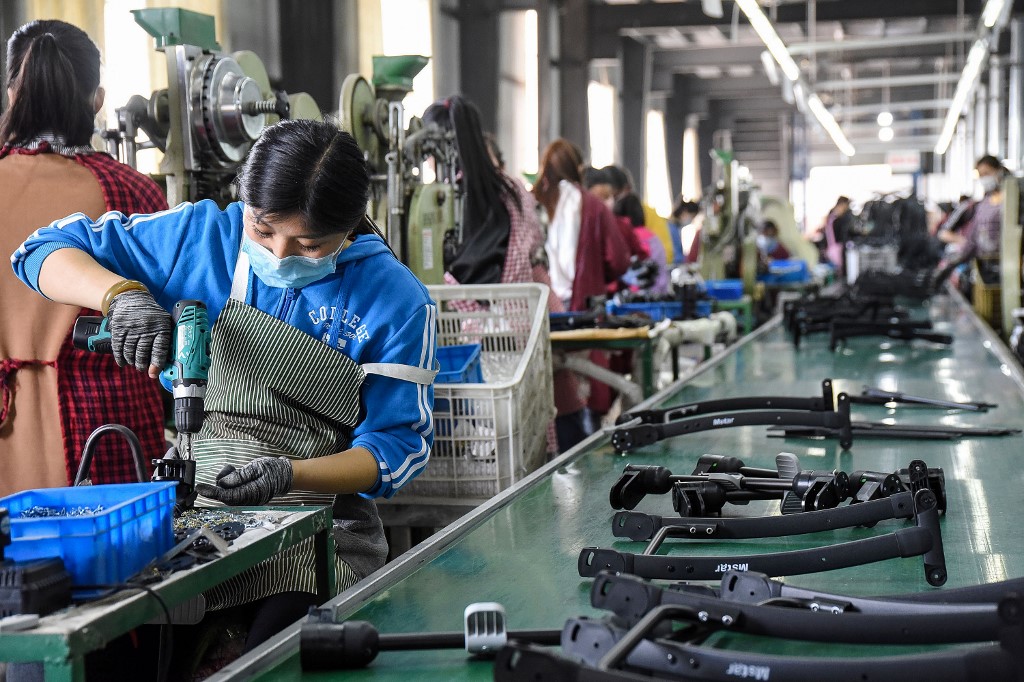(ATF) China’s leadership has been urged to loosen restrictions that make it difficult for smaller firms to sell bonds, enabling a sector that accounts for 60% of GDP to better finance itself.
Issuance restrictions should be lowered on small- and medium-sized enterprises (SMEs) while market information disclosures and the bond rating process should be improved, said Lai Xiufu, a representative of the National People’s Congress and director of the Trust Department of the China Banking and Insurance Regulatory Commission.
A bond market default resolution mechanism is needed and the range of securities backed by SME bonds should be increased to attract more investors Lai said, adding he will submit proposals to the General Assembly this year.
SMEs are the driving force of the Chinese economy and in 2019 there were about 38 million of them, accounting for 90% of all corporate entities and employing 80% of China’s workforce.
A huge number faced collapse in the economic downturn caused by the coronavirus pandemic and the government has targeted stimulus measures to aid in the crucial sector’s recovery. Among them were sales of collective bonds, short-term financing bonds, collective bills, regional collective debt financing instruments and private placement bonds for SMEs.
However, Lai pointed out, SMEs would perform better if they had access to sell their own bonds on the fixed-income markets.
“While the types of SME bonds are gradually broadening, we should also still see that the scale of China’s SME bonds is not large, and its role in meeting the financing needs of SMEs is not yet fully developed,” Lai said in an interview with China Financial News.
High threshold
The threshold of bond issuers is too high, the lack of investment subjects, and suspected violations of the “high-yield” financing tools which are exploit regulatory gray areas. He explained in detail that, first of all, the threshold for issuing bonds in the SME bond market is too high and there are many restrictions on issuance.
China’s strict qualification requirements on bond sales makes them more conducive to large state-owned enterprises and government financing units than SMEs, Lai said. This is detrimental to the bond market, too, he said, preventing it from reflecting the principle of allocating funds according to market interest rates. This also has the effect of raising SME bond interest rates, making them too expensive to redeem when they mature.
This partly explains why China’s shadow banking sector is so huge, said Lai.
These constraints also means the market for SME bonds is small and issuances are also given an unnecessarily low. Insurance funds and money market fundscan only invest in short-term financing bonds with the highest ratings and while there are no such restrictions on banks, pressures on the to maintain capital provisions means they buy little of the debt.
As a result of “grey areas of financial supervision”, some SMEs have approached loan sharks, pawn shops and illegal P2P operations that offer high-interest loans to raise funds. The opaque nature of this so-called “high-yield financing tool” means borrowers and their legitimate investors are open to abuse and creates uncertainties for social stability.
Lai’s proposals
In his bill, Lai will recommended that hard indicators of sale qualification, such as net assets and debt ratios be replaced by tests that are more relative to SMEs. Instead, he said, sales emphasise the “soft power of enterprise growth and innovative development”, attach importance to the potential value of enterprises, and invest in “potential stocks”.
He will also propose removing the shackles that prevent institutional investors from buying lower-rated bonds. Regulators may also consider developing special investment funds for qualified investors of income bonds, such as private equity investment funds.
It’s recommended that policies be created to encourage SME bond investment in line with loan support policies for SMEs, such as requiring institutional investors to achieve a certain percentage of SME bond investments, or giving investors Policy Support.
Lai’s bill will also stress the need for strengthening information disclosures, including the imposition of tougher penalties for misleading investors. The bond rating mechanism needs strengthening a default settlement mechanism that streamlines regulations, reduces the cost of judicial relief and improves the efficiency of bond default settlements is needed. That could involve the establishment of a unified national professional bankruptcy court, Lai said.
Finally, bond product innovation would be necessary to attract investors. More securities backed by SME bonds could be created, as could integrated multiple private placement bonds and collective private placement bonds.
Bonds that can be converted into equity might also be mulled, he said, adding they could connect the SME bond market with the OTC market. That would help improve liquidity and by slicing the structured securities into tranches of different risk levels, they could attract a broader range of investors, Lai said.
























